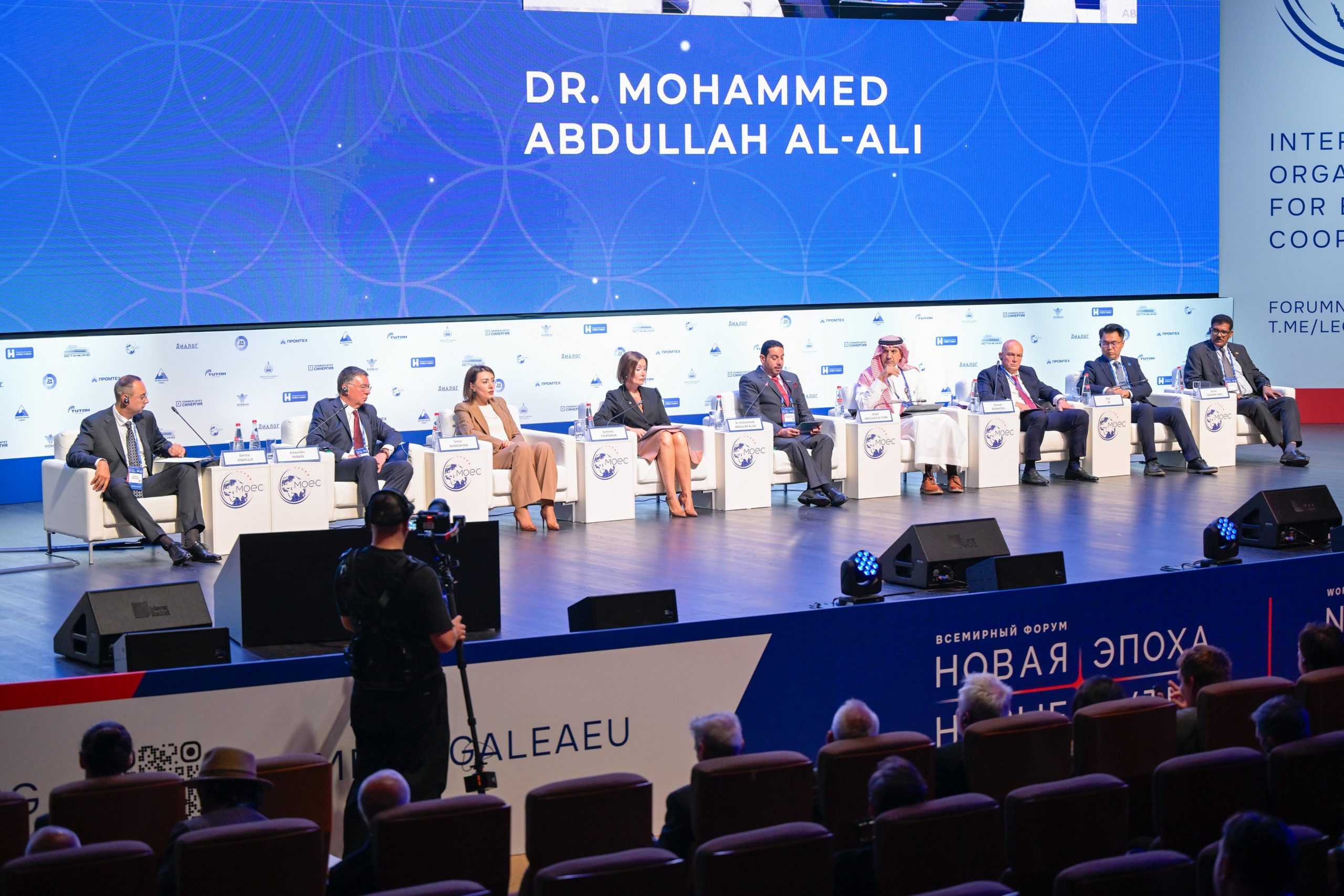Dr. Mohammed Al-Ali:
–Think tanks have become strategic bridges, capable of transforming ideas into actionable policies
–TRENDS believes that knowledge is a soft power that enhances stability and supports regional and international integration
–The Greater Eurasian Partnership is reshaping interactions between Europe, Asia, and the Middle East
As part of its tour of Russia, TRENDS Research & Advisory participated in the forum – Greater Eurasian Partnership: Development Strategy – through its physical office in Russia, held by the International Organization for Eurasian Cooperation (IOEC) in Moscow. The forum witnessed the participation of more than 130 academic speakers from 55 countries, among them Pankin Aleksandr, Deputy Minister of Foreign Affairs of the Russian Federation.
In the forum’s opening session, Dr. Mohammed Al-Ali, CEO of TRENDS Research & Advisory, reviewed the role of think tanks and their contribution to the development of the Greater Eurasian Partnership. He noted that think tanks and research centers play a developmental role in shaping the future and building cross-border strategic partnerships, including the Greater Eurasian Partnership.
He emphasized that the world is experiencing rapid transformations and is becoming increasingly intertwined and complex at various levels. Moreover, the challenges facing societies are increasing and pose unprecedented threats. However, these challenges also present tremendous opportunities for cooperation, action, and shared prosperity, especially in this era of the knowledge and digital revolution that the world is currently witnessing.
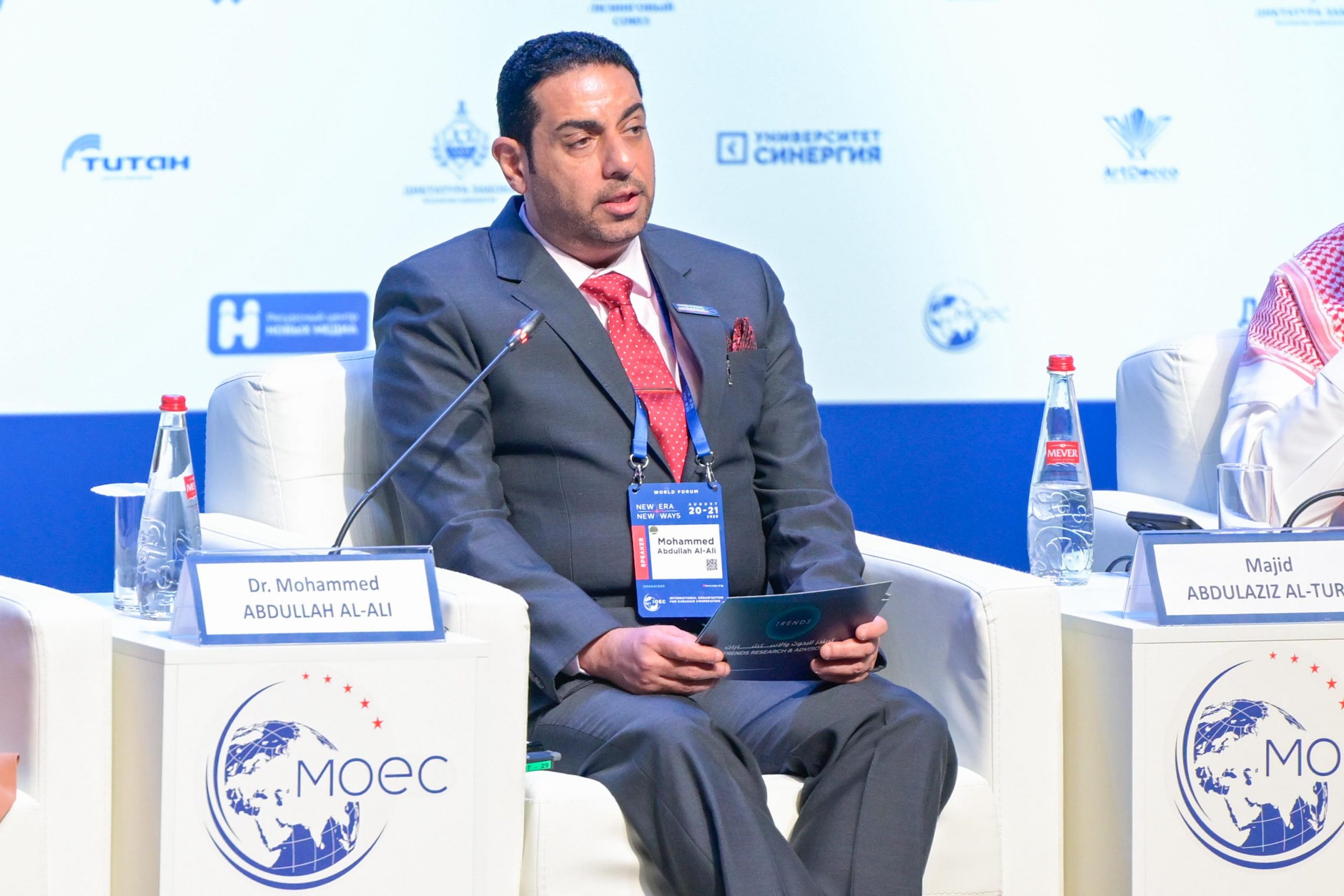
Knowledge Exchange Platforms
Dr. Al-Ali explained that, considering these transformations, the importance of think tanks has grown, transcending their role as mere research entities. They are now strategic bridges connecting decision-makers in governments, the business sector, and academic institutions. They represent platforms that facilitate creative interaction between visions and experiences, transforming ideas into actionable policies. TRENDS is keen to enhance its role as a platform for knowledge exchange and building trust by providing evidence-based analyses, scientific foundations, methodologies, and approaches based on accurate data.
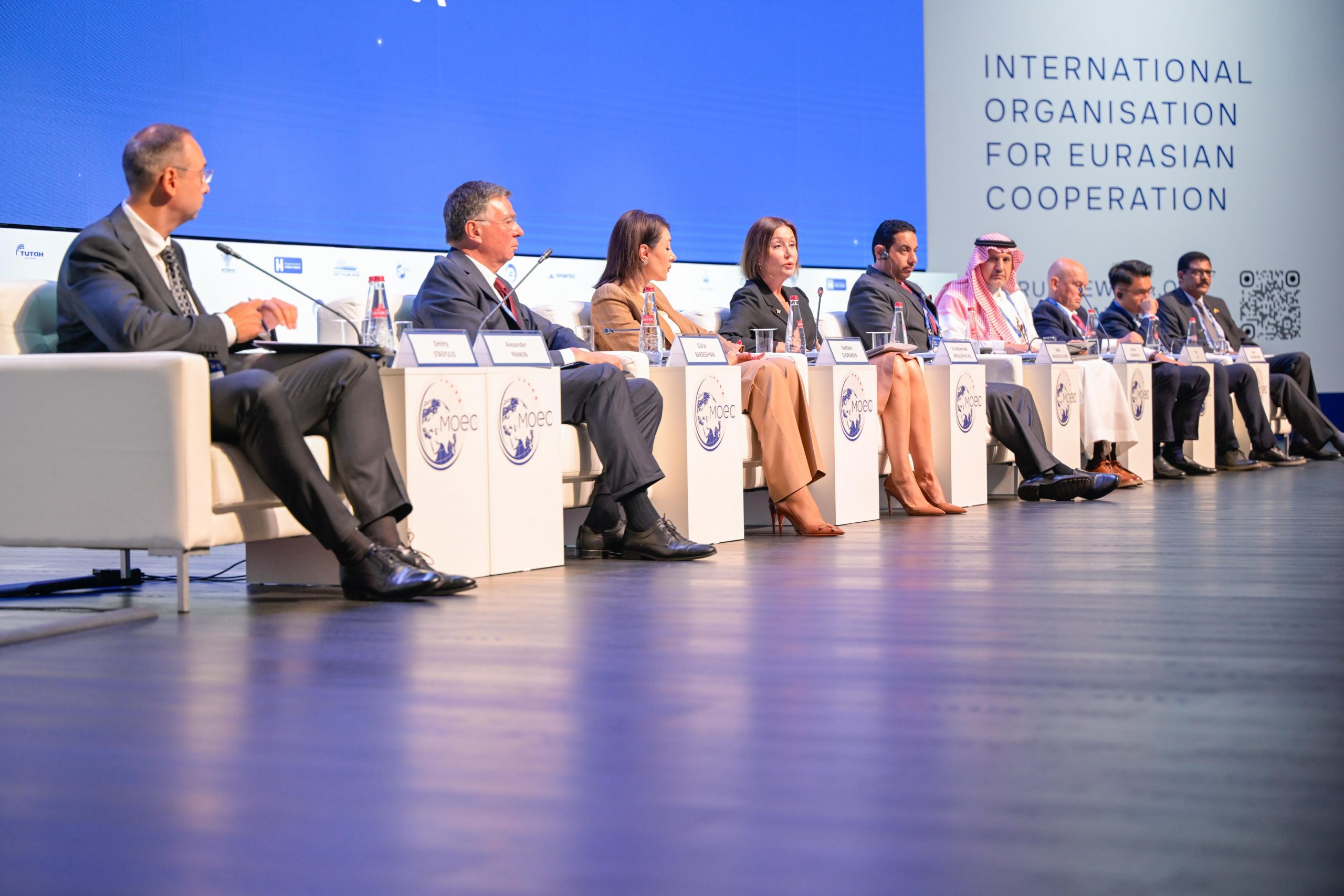
Building a Shared Future
The CEO of TRENDS noted that the Greater Eurasian Partnership, with its various political and economic dimensions, has become one of the 21st century’s most ambitious projects. In an increasingly competitive and polarized world, this partnership seeks to reshape interactions between Europe, Asia, and the Middle East, particularly as their relations now extend beyond economic and trade exchanges. It aspires to reach a strategic level that promotes the construction of a shared future for a wide range of diverse countries. “For this partnership to succeed in achieving its ambitious goals, a solid knowledge base must support every step of its construction and development. This is where think tanks come in, as knowledge institutions and effective tools for guiding strategies and analyzing global trends,” he added.
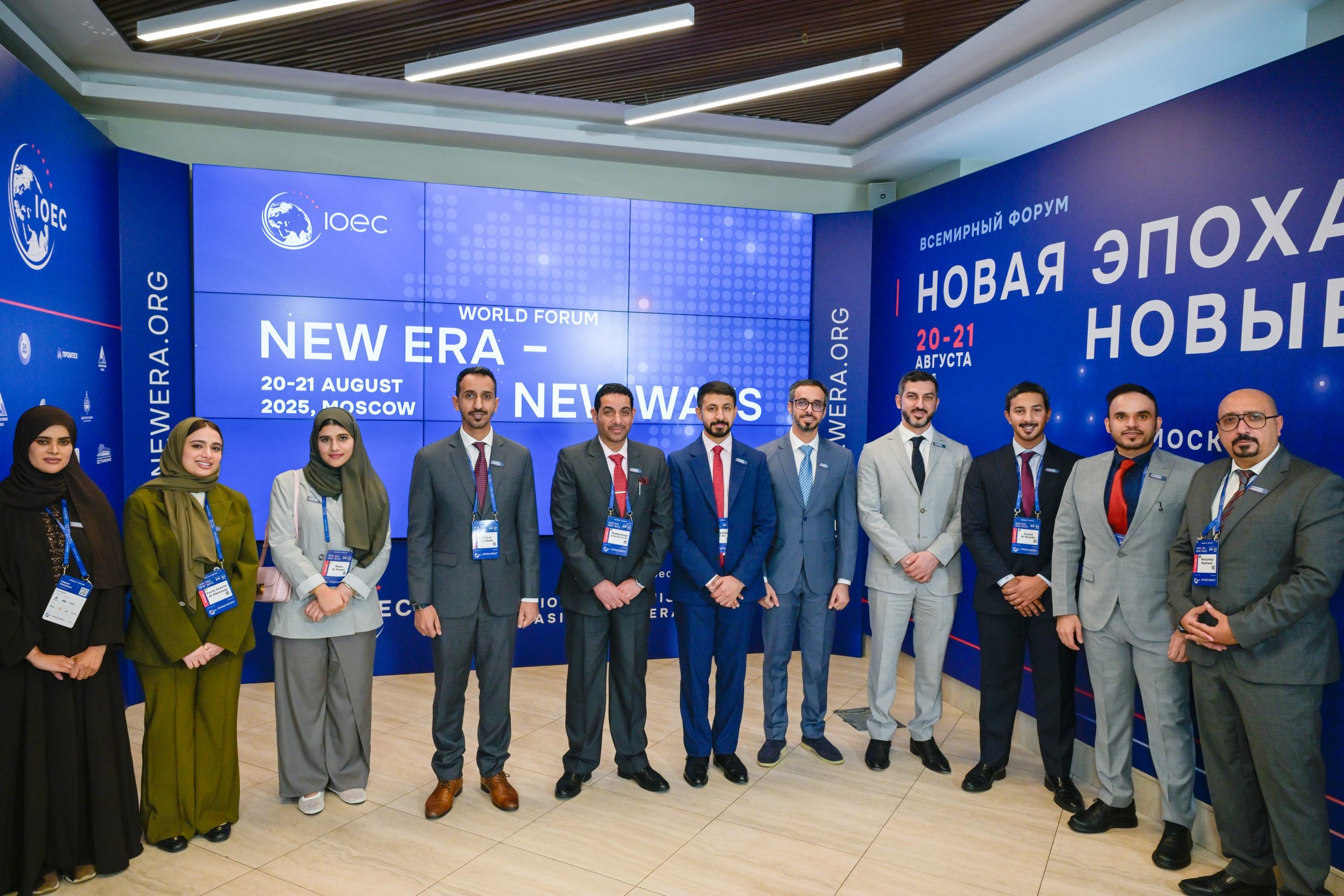
Predicting Economic Transformations
Dr. Al-Ali stated that think tanks, with their significant capacity to provide robust and comprehensive visions for the future, play a central role in planning political-economic transformations, and they can offer flexible scenarios that allow these contributions to changing challenges. Furthermore, TRENDS Research & Advisory is actively participating in the policy sphere, highlighting its role as a think tank in Eurasian studies, and forging new partnerships with participants in the Eurasian Economic Union, the Shanghai Cooperation Organization, the Association of Southeast Asian Nations (ASEAN), and the Belt and Road Initiative.
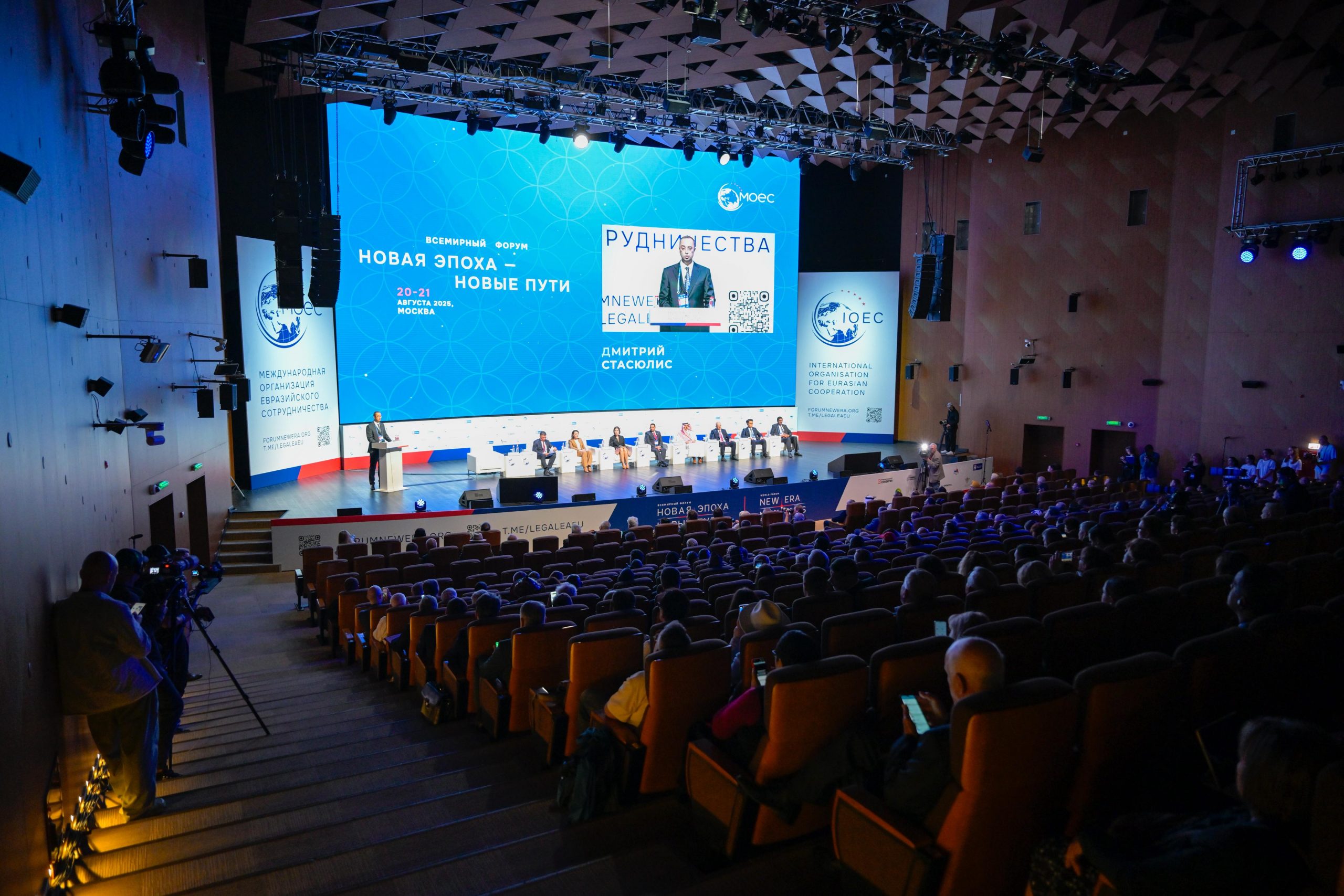
The TRENDS CEO concluded by stating that the time has come to explore new horizons by signing MoUs with research centers and think tanks that share common visions and goals, developing joint research programs, and organizing dialogue forums. This fosters an understanding of the challenges and opportunities in the Eurasian region and drives the development of more innovative and more collaborative policies.



